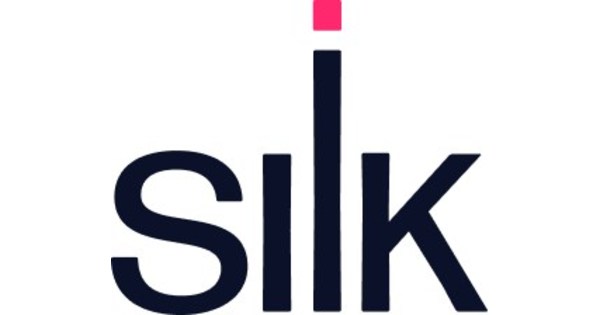The 29 Best Enterprise Data Storage Companies for 2025


Solutions Review’s listing of the best enterprise data storage companies is an annual sneak peek of the solution providers included in our Buyer’s Guide and Solutions Directory. Information was gathered via online materials and reports, conversations with vendor representatives, and examinations of product demonstrations and free trials.
Enterprise data storage is a centralized repository for information, which commonly offers data management, protection, and sharing functions. Because enterprises handle massive amounts of business-critical data, storage systems that are highly scalable, offer unlimited connectivity, and support multiple platforms would benefit them the most. There are multiple approaches to data storage to choose from, including Storage Area Networks (SANs), Network-Attached Storage (NAS), Direct-Attached Storage (DAS), and cloud storage. The importance of data storage is underlined by the exponential generation of new data and the proliferation of Internet of Things (IoT) devices.
Newer approaches and technologies that are currently disrupting the market include hyperconverged storage and flash technologies such as Non-Volatile Memory Express (NVMe). This trend stems from the increased amount of horizontal scalability and reduced latency these methods offer. Storage for containers is also becoming a stronger selling point, as well as enterprise storage based on composable and disaggregated infrastructure concepts, which combine individual resources at the hardware level and then assemble them at the software level by using APIs.
Selecting the best enterprise data storage company to work with can be a daunting task, and we’re here to help. That’s why our editors have compiled this list of the best enterprise data storage companies to consider if you’re looking for a new solution.
Check out our online data storage best practices section for even more guides, advice, and how-to content.
The Best Enterprise Data Storage Companies
Amazon Web Services (AWS) offers a range of IT infrastructure services to enterprises. In addition to storage, the provider’s solutions and products include cloud computing, compute, networking, content delivery, databases, analytics, application services, backup, and archive. AWS provides a variety of cloud storage solutions, such as Amazon Elastic Block Store (Amazon EBS), Amazon Simple Storage Service (Amazon S3), and AWS Backup, among others. Users are enabled to select from object, block, and file storage services as well as cloud data migration options when selecting their solution. The vendor’s various platforms also support both application and archival compliance requirements.
Caringo is a provider of object-based technology for accessing, storing, and distributing unstructured or file-based data. Its flagship product, Caringo Swarm, provides private cloud storage that enables users to deploy storage clusters without being locked into proprietary hardware. In addition to data storage, the provider offers enterprise IT, medical, high-performance computing, and media and entertainment solutions. Caringo’s storage platform is offered in private, public, and hybrid cloud environments. Users also have the ability to scale on–premise with any mix of x86 hardware.
Cloudian is an independent provider of object storage systems, offering S3 compatibility along with a partnership ecosystem. The vendor’s flagship solution, HyperStore, provides scalability, flexibility, and economics within the data center. Additionally, Cloudian’s data fabric architecture allows enterprises to store, find, and protect object and file data across sites. These processes can take place both on-prem and in public clouds within a single, unified platform. In 2020, Cloudian HyperStore was recognized as a 2020 Gartner Peer Insights Customers’ Choice for Distributed File Systems and Object Storage.
Cohesity consolidates secondary storage silos onto a hyperconverged, web-scale data platform that supports both public and private clouds. The vendor’s storage solution enables users to streamline their backup and data protection and then converge file and object services, test/dev instance, and analytic functions to provide a global data store. Cohesity delivers a single platform, a single GUI, and an app ecosystem, as well as machine learning capabilities. The provider offers two hyperconverged platforms, C3000 and C4000, as well as its distributed file system solution, Cohesity SpanFS. In 2020, Cohesity raised $250 million in Series E funding. Additionally, it was named a ‘Leader” in the GigaOm Report on Unstructured Data Management Solutions.
DataDirect Networks (DDN) is a provider of scalable storage and processing solutions, as well as professional services. Organizations have the ability to use a range of DDN storage platforms to capture, store, process, analyze, collaborate, and distribute data, information, and content at a large scale. The solution is offered in two appliance options and is also available as a software-only distribution. The vendor provides services to financial services firms, healthcare organizations, energy companies, government facilities, and cloud service providers.
Dell EMC enables digital transformation through hybrid cloud and big data solutions built on a data center infrastructure that brings together converged infrastructure, servers, storage, and cybersecurity technologies. The provider’s featured solution, Dell EMC Unity XT, offers multi-cloud enablement and an NVMe-ready design. Users are enabled to support virtualized applications, deploy unified storage, and address Remote-Office-Branch-Office requirements. The platform’s Unisphere management GUI also allows users to easily configure and manage storage. The vendor also offers file and object storage solutions. Dell EMC also recently released its PowerScale solution for unstructured data.
Fujitsu is a Japanese information and communication technology company that offers a range of technology products, solutions, and services. These services and solutions include consulting, systems integration, managed services, outsourcing and cloud services for infrastructure, platforms and applications, data center and field services, and server, storage software, and mobile technologies. Fujitsu provides all-flash and hybrid storage, hyper-scale storage, storage management software, and storage for backup and archive.
Hedvig, a Commvault Venture, delivers enterprise storage for environments running at any scale. The provider’s platform is a software-defined storage solution with distributed systems DNA, unrestricted by existing architectures that are unable to keep pace with scale-out applications. Additionally, Hedvig accelerates data to value by collapsing disparate storage systems into a single platform, thereby creating a virtualized storage pool that easily provisions storage and runs in both public and private clouds.
Hitachi Vantara assists enterprises with storing, enriching, activating, and monetizing their data. The provider offers four solutions under the umbrella of object storage, namely, Hitachi Content Platform (HCP), HCP Anywhere, Hitachi Data Ingestor (HDI), and Hitachi Content Intelligence. Each provides object storage, file synchronization, sharing, end-user data protection; a cloud file gateway; and search and analytic insights. The vendor is a wholly–owned subsidiary of Hitachi, Ltd., and also offers backup and disaster recovery solutions.
HPE SimpliVity provides hyperconverged storage by converging the entire IT stack in each node, consolidation up to ten devices and apps in a building block for virtualized workloads. Before HPE acquired the company, SimpliVity delivered hyperconverged infrastructure on a range of industry-standard x86 platforms. Now, HPE SimpliVity provides its software-defined solutions that are built and supported by HPE. The vendor offers two platforms, HPE SimpliVity 380 and HPE SimpliVity 2600, which can both be integrated with the intelligent networking fabric, HPE Composable Fabric.
Huawei Technologies is a telecom solutions provider that offers infrastructure application software and devices with wireline, wireless, and IP technologies. The vendor has three divisions in the United States: enterprise (IP networking and router, wireless, storage, and data center security), carrier, and consumer devices (smartphones and tablets). Regarding storage, Huawei offers all-flash storage, hybrid flash storage, cloud storage, Hyperconverged Infrastructure (HCI), and data management. Its HCI platform, FusionCube for Cloud enables resource-on-demand provisioning and linear expansion.
IBM offers a wide range of technology and consulting services, including predictive analytics and software development. The provider offers a range of storage options, including flash storage, Software-Defined Storage (SDS), data protection software, hybrid storage arrays, Storage Area Networks (SAN), and tape storage. Through these products, IBM’s solutions support hybrid cloud storage, converged infrastructure, and virtual infrastructure. Additionally, the platforms allow for storage for blockchain, artificial intelligence, private cloud, and SAP.
Infinidat provides enterprises and service providers with a platform-native primary and secondary storage architecture that delivers comprehensive data services based on InfiniVerse. This unique platform delivers outstanding IT operating benefits, support for modern workloads across on-premises and hybrid multi-cloud environments. Infinidat’s cyber resilient-by-design infrastructure, consumption-based performance, 100% availability, and cyber security guaranteed SLAs align with enterprise IT and business priorities. Infinidat’s award-winning platform-native data services and acclaimed white glove service are continuously recommended by customers, as recognized by Gartner Peer Insights reviews.
Inspur provides big data services, cloud data centers, cloud services, and smart enterprises. The provider offers Active Storage (AS) and the infrastructure SDS (AS13000) platform. Inspur AS13000 is delivered as a hardware appliance, but a software-only solution is also available for strategic customers and partners. While Inspur provides many services, its storage business is the second largest within the company, after its server business. The majority of Inspur’s storage dealings occur in China, with the government and transportation/logistics industry accounting for more than half of its revenue.
NetApp is a storage, cloud computing, information technology, and data management solution provider. In addition to predominantly offering on-prem storage infrastructure, the provider also specializes in hybrid cloud data services that facilitate the management of applications and data across cloud and on-prem environments in order to accelerate digital transformation. The vendor’s solution, StorageGRID, is an object storage platform whose primary access method is the Amazon S3 API. The tool offers hybrid cloud workflow and adheres to SEC and FINRA regulations.
Nutanix provides cloud software, compute and storage infrastructure, and hyperconverged infrastructure solutions for implementing enterprise virtualization without complex and expensive network storage, whether it is SAN or NAS. Nutanix Complete Cluster’s converged compute and storage architecture can scale to manage petabytes of data while running thousands of virtual machines. Nutanix’s storage solution, Nutanix Acropolis, offers built-in AHV virtualization, networking services, platform services, and enterprise storage capabilities such as data protection and disaster recovery features. The provider recently raised $750 million from Bain Capital Private Equity.
Pivot3 provides Dynamic Hyperconverged and PCIe Flash Arrays, as well as hybrid cloud and Internet of Things (IoT) solutions in order to deliver maximum resource utilization. The vendor’s offerings are optimized for server virtualization, virtual desktop, data center consolidation, video surveillance, business continuity, disaster recovery, and remote and branch office. Pivot3’s storage solution provides security, resilience, and management at scale for the user’s environments. Powered by its Intelligence Engine, the vendor automates the management of multiple mixed application workloads and reduces unplanned downtime.
Pure Storage is an all-flash enterprise storage provider that enables broad deployment of flash in data centers. Its technologies enable Software as a Service (SaaS) organizations, cloud service providers, and enterprise and public sector users to deliver secure data to power their DevOps and modern analytics environments in a multi-cloud environment. The vendor’s platforms accelerate random I/O-intensive applications such as server virtualization, desktop virtualization (VDI), database (OLTP, rich analytics/OLAP, SQL, and NoSQL), and cloud computing. Pure Storage also enables users to adopt next-generation technologies, including artificial intelligence and machine learning, to maximize the value of their data. In 2020, Pure Storage acquired Portworx for $370 million.
Qumulo is an enterprise data storage startup whose solutions are available on Qumulo storage servers, on hardware from companies such as Dell and HPE, and natively on AWS in the public cloud. The provider was formed by professionals from Isilon Systems, Adobe, and Wily Technology. The vendor offers Qumulo File Fabric (QF2), a scale-out NAS tool that runs on-prem and in the public cloud, as well as preintegrated Qumulo Core appliances. Additionally, the provider offers software that is available on AWS Marketplace, third-party hardware, and standard hardware that Qumulo sells directly to customers.
Rackspace provides hybrid cloud-based services, Infrastructure as a Service (IaaS), and web hosting. The vendor is primarily a web hosting and managed service provider offering OpenStack-based public cloud services, but it has shifted its strategy to being a managed service provider across a range of public clouds, rather than focusing on its own native cloud storage services. In regards to storage, Rackspace offers Cloud Files and Cloud Block Storage. The vendor’s public cloud services are offered in data centers in the central and eastern U.S., the U.K., Australia, and Hong Kong.
Red Hat is a software provider that offers open-source software products to the enterprise community. The vendor provides operating system platforms, along with middleware, applications, and management solutions, as well as support, training, and consulting services. Red Hat provides Red Hat Ceph Storage, an open-source software product supporting block, object storage access and file access, as well as the underlying storage for Red Hat’s data analytics infrastructure solution and Red Hat Hyperconverged Infrastructure for Cloud. The platform supports modern workloads like cloud infrastructure, data analytics, media repositories, and backup and restore systems.
Scality is a venture-backed software provider that delivers large-scale storage management and infrastructure solutions. The vendor’s flagship solution, RING, makes x86 servers scale to hundreds of petabytes and billions of objects. Additionally, RING has an end-to-end parallel architecture and a patented object storage core that increases availability and durability. The platform integrates with applications through standard storage protocols such as NFS, S3, OpenStack Swift, and Cinder. Scality offers its services to telecommunications and media companies throughout the United States, Europe, and Japan.
Silk, formerly Kaminario, provides all-flash storage and was founded by storage professionals from Dell EMC, NetApp, and IBM. The provider’s data platform delivers real-time analytics, data center automation, and assured data access, allowing users to protect their digital ecosystem. Silk’s flagship solution is now in its sixth generation. The platform provides scale-out and scale-up architecture, which enables organizations to grow in capacity based on their needs. The vendor works with a network of resellers and distributors on a global scale.
StorageCraft provides a converged primary and secondary scale-out storage platform with integrated data protection, which supports on-prem, cloud-based, or hybrid deployments. Additionally, the vendor offers data protection, data management, and business continuity solutions. The provider’s flagship platform, OneXafe, is a converged data platform that unifies enterprise data protection with scale-out storage in a configurable solution. OneXafe also offers reduced operational complexity and cost of ownership, in addition to business continuity and Disaster Recovery as a Service (DRaaS) capabilities.
SUSE is an open–source software provider that delivers software-defined infrastructure and application delivery solutions. The SUSE Enterprise Storage (SES) is based on Ceph and provides unified access for block, file, and object protocols for mainstream enterprises. Additionally, SUSE is one of the eight founding organizations on the Ceph Advisory Board and a contributor to the Ceph open-source community. SES is delivered as software or as reference architecture through hardware OEMs with Dell EMC, Supermicro, HPE, Lenovo, Huawei, Fujitsu, and Cisco. In 2020, SUSE acquired the Kubernetes management platform, Rancher Labs.
SwiftStack provides private cloud storage for enterprises, offering the benefits of public cloud on infrastructure IT controls. The vendor’s public cloud storage offerings come from Amazon, Google, and Microsoft. SwiftStack storage can be addressed over file services or via object APIs for use in content delivery, active archive, collaboration, and other data-centric workflows. Additionally, the provider is the main contributor to the OpenStack Swift project, as well as 1space and ProxyFS, which are dedicated to hybrid/multi–cloud and file access, respectively. SwiftStack has recently expanded its focus on Amazon S3 API support to adjacent areas such as hybrid cloud storage. In 2020, SwiftStack was acquired by NVIDIA.
Violin Systems, also known as Violin, is an enterprise storage solution provider that supports cloud, hybrid cloud, and on-prem environments. Violin storage platforms are powered by Concerto OS, an integrated storage operating system. In addition to storage, the vendor also provides a combination of data protection, business continuity, and data reduction services through its integrated data services. Violin also delivers CAPEX and OPEX savings. The provider offers server, desktop, private cloud, and hybrid cloud storage solutions, as well as a range of hardware. StorCentric recently acquired Violin Systems for an undisclosed amount.
Virtustream provides cloud computing management software and Infrastructure as a Service (IaaS) to enterprises, service providers, and governments. The provider is a subsidiary of Dell Technologies and was acquired by EMC in 2015. This resulted in EMC’s managed services and some cloud-related assets being combined with Virtustream’s offerings. The vendor’s solution, Virtustream Storage Cloud (VSC), delivers an archive-focused object storage service based on Dell EMC’s storage appliances. Additionally, the provider has multiple data centers in the U.S., as well as data centers in Germany, the Netherlands, and the U.K.
Western Digital (WD) provides data storage solutions to enable organizations to manage and preserve their digital content. The provider offers Hard Disk Drives (HDDs) and Solid-State Drives (SSDs) for desktop and notebook personal computers, as well as the performance enterprise and capacity enterprise markets. Additionally, Western Digital offers HDDs used in consumer electronics such as DVRs, security surveillance systems, and gaming consoles. The vendor’s storage technology offers two-site asynchronous replication and the ability to deploy selected Docker containers on the platform itself.



















































